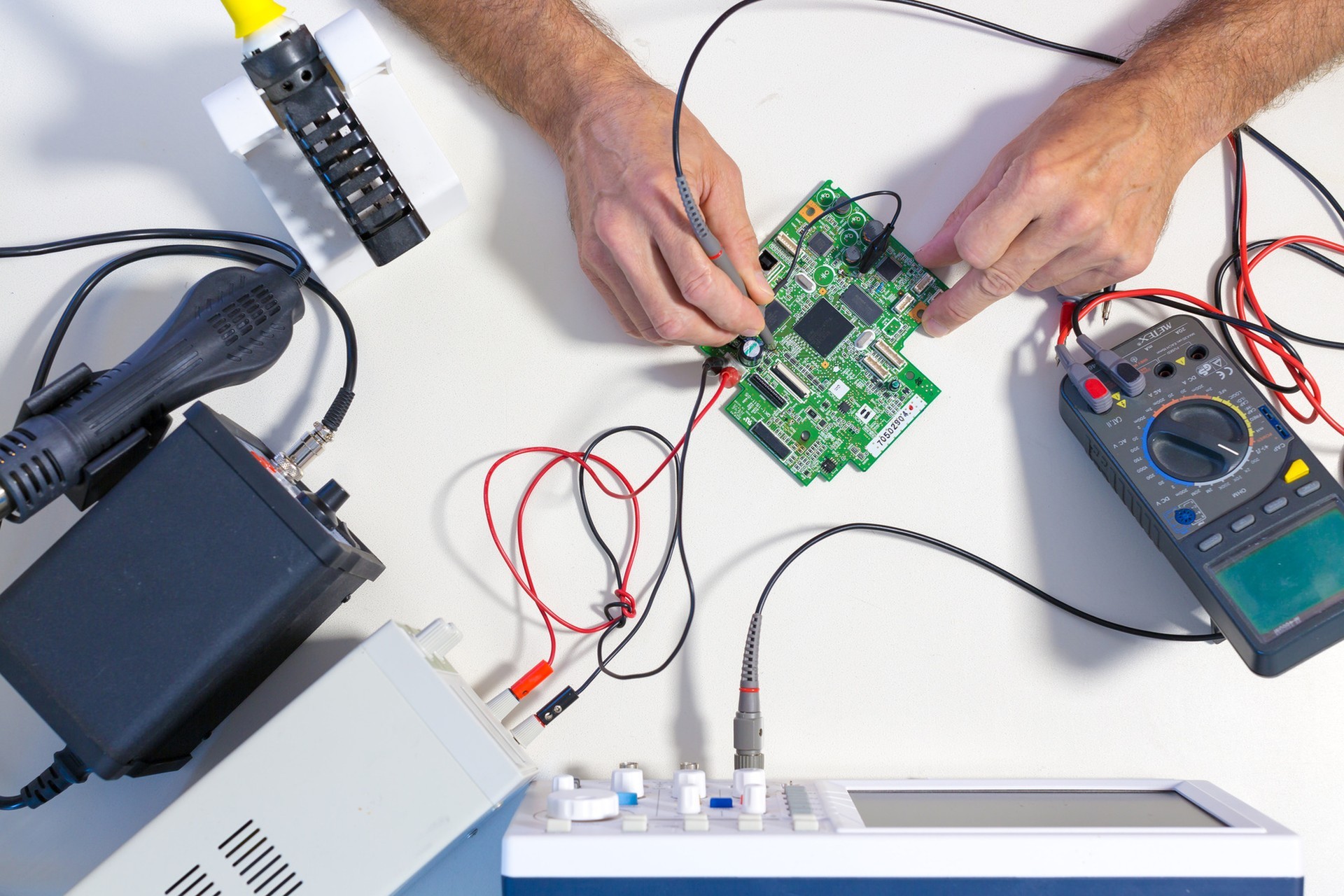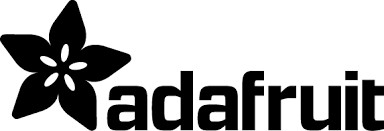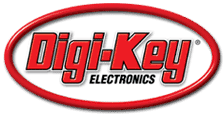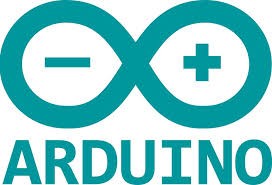Top 30 Resources for Hardware Startups and Makers
I’ve put together a list of my favorite online resources for those developing new electronic products. These 30 resources will really help you succeed.

Hardware startups and makers can use all the help they can get. It can be difficult, however, to find resources for developing a physical hardware product (as opposed to software). But I think you will find the following very helpful.

Hardware makers and entrepreneurs meet up and share their electronics projects on Hackster. There is no better resource for finding electronic maker projects to learn from. You can even post details of your projects to request feedback from the Hackster community.
Also check out their blog which has relevant interviews with top hardware developers. They also hold numerous contests allowing you to win all kinds of development gear.
Seeed Studio is well known in the maker community, and for good reason. They are a Chinese company that offers a variety of services including design, prototyping, manufacturing, and logistics. Seeed can be a great first step into manufacturing in Asia since they will handle orders as small as 200 pieces. They also offer their own line of electronic modules and components.
I’ve worked with Seeed multiple times and have found them to produce high-quality products at great prices. Perhaps, most importantly, they offer great customer service, especially for a company based in China.
Have you finished developing your prototype? Do you already have orders coming in? If you answered yes, it is time to move into the production stage of development.
Dragon Innovation specializes in taking hardware startups from the prototype stage to mass manufacturing in Asia. They are perhaps best known for being the company that helped Pebble setup their manufacturing in China.
You can learn more about transitioning into full manufacturing on Dragon Innovation’s informative blog.
DipTrace provides a line of user-friendly software for designing custom PCB’s. DipTrace is known for being powerful, intuitive and affordable. Experienced engineers and beginners alike choose DipTrace software to design their electronics.
Although there are dozens of PCB design software packages available, the big advantage with DipTrace is its intuitive user interface. In fact, DipTrace has been my preferred design software for several years. It can handle anything from simple designs up to extremely complex circuits with thousands of pins.
Looking for a venture capital (VC) firm that funds hardware startups? Bolt is a VC firm that invests up to $500k specifically in innovative hardware startups. They prefer to fund hardware startups that also utilize a recurring software component.
Bolt’s blog contains articles on entrepreneurship and product development. Their articles discussing various financial aspects of hardware startups are especially insightful. Being a VC focused on hardware startups gives them a very unique perspective. There is a lot of wisdom to be gained by closely reading much of their content.
Hardware Massive matches startup companies with the service providers they will need. They also host an annual conference for hardware startups called HardwareCon.
Aimed at the lower volume manufacturing needs of startups, Hardware Massive curates a vetted provider and mentor list. The list of “matching” categories is extensive –ranging from prototyping to industrial design to patent procurement.
Their post-production services are likewise extensive. Their vendors can help with everything from graphic design to shipping, fulfillment and retail distribution. Consider Hardware Massive as a one stop shop for matching all your startup needs with their vetted professionals.
MacroFab seeks to reshape the U.S. contract electronics manufacturing market. They use software to eliminate much of the frustration found in the manufacturing process. They offer PCBA prototyping, high-volume production, and post manufacturing services.
You can check on the status of your manufacturing order using their online platform. Post production, they offer online inventory and fulfillment services. Be sure to check out their blog and weekly podcast (especially episode #106 where they interview me).
HackSpace Magazine is published by Raspberry Pi but focuses on the broader maker market and definitely isn’t limited to Raspberry Pi (or even electronics). HackSpace shouts for readers to “grab some duct tape, fire up a microcontroller, ready a 3D printer and hack the world around you!”
You will find inspiration in all the wild and wonderful hardware hacks featured on their website and in their monthly magazine. Be sure to check out my article in their 2nd edition on how to make your own custom Arduino.
Sparkfun sells electronic modules and development kits for DIY designers. All of their designs are open source and include a PDF schematic diagram, a datasheet, and the full Eagle design files.
They sell a huge assortment of electronic modules and components. Their product offerings include everything from microcontroller boards to sensors to wireless modules.
They also provide a huge number of detailed tutorials which are fantastic for learning about electronics design. Their blog is also a great resource for learning more about electronics.
In addition to selling third-party boards such as Arduino and Raspberry Pi, AdaFruit also sells their own open-source modules, shields, and components.
They offer their own line of “Arduino-like” microcontroller boards called Feather. The name Feather was chosen because the boards are thin, light, and run from a battery. Feather boards are available with other features such as Bluetooth, WiFi, and cellular connectivity.
AdaFruit provides numerous tutorials and instructional videos for beginners. They even host a video electronics show. Their company is open source and they design and produce electronics, development kits, and accessories.
Some of the largest electrical component distributors are Newark, Mouser, Digi-Key, and Arrow. Between these sites you can find nearly any electronical component that you may need. They are also an efficient resource to price all types of electrical components.
Although, keep in mind that once your manufacturing volume is high enough you are generally better off purchasing most of your components directly from the manufacture so to reduce the cost.
This is an obvious one, but no list of resources for hardware startups would be complete without Arduino. An Arduino is a microcontroller development kit, whereas a Raspberry Pi is a microprocessor development kit. When possible it’s almost always best to base your product on a microcontroller instead of a microprocessor to minimize complexity and cost.
Development kits like Arduino can help you get farther into the development process on your own. This will save you time and considerable money! Arduino is one of the best known development kits on the market, with prices starting as low as $20.
Proto Labs is a great place to have your prototypes and low volume production units produced. They can provide either 3D printing or CNC milling of prototypes. Then, when you are ready to start producing thousands of parts, you can advance to their low-cost injection molds.
Proto Labs is always my go-to choice when it comes to quality, 3D printed prototypes and low-volume injection molding.
You can even upload your 3D design files and their automated quote tool will analyze your design and identify areas in need of improvement. This is especially useful when migrating from 3D printed prototypes to injection molding.
As one of the largest e-commerce companies on the planet, Alibaba is an important place to look for and purchase all kinds of components. If you are looking for an Asian supplier for specific components then Alibaba is the best place to start.
Just about every type of product or component you can think of is available direct from Chinese suppliers. Of course, you must be careful in regards to quality so you should always begin by getting some samples.
Alibaba can also help you connect with Asian manufacturers that can produce any of your custom components. If you require a custom component or module, many times you can find a supplier offering something close, but that will be willing to customize it for you. This is usually a better choice than designing something completely from scratch.
Tindie is a website where you can buy directly from makers. Want to start selling your own product in the very early stages of development? If so, then sign up with Tindie as a seller.
Tindie features DIY electronics in addition to drone, camera and smart home products. It’s a great way to get initial sales for your product, and the valuable market feedback that only comes from actually selling your product.
If you want to learn more about DIY electronics, head to Build-Electronic-Circuits. Norwegian founder Oyvind Nydal Dahl publishes user friendly guides about learning electronics.
Non-technical founders can learn a lot from his online electronics classes and his beginner books like Basic Electronic Components and Getting Started with Electronics.
On Quora, a question and answer site, you can post questions and get answers from product development experts.
You can learn a lot by asking for feedback from professionals experienced in product design, manufacturing, marketing, and prototyping to name a few. Posting your questions also is free. Quora is one of the best places to get just about any question answered.
A lot of hardware startups have found funding through Crowdfunding. There are many crowdfunding sites but Kickstarter stands above the rest.
You may have heard of the smart-watch startup Pebble Technology. They raised $10.3 million in 2012 using Kickstarter. Three years later they raised $20 million for their second generation products.
Calling all makers, hackers and DIY enthusiasts! Best known for their monthly magazine, Make: is the place for you to find information, inspiration and entertainment.
They also host a massively popular maker fair each year in May.
Upverter provides an online tool for the design of electronic circuits and printed circuit boards. Users describe the interface as being very user friendly. Their many features will help you prevent common design mistakes.
They also host a blog related to entrepreneurship and hardware development.
Are you new to designing electronics? Or perhaps you are a non-technical founder looking to learn more? I recommend that any electronics newbies check out the Bald Engineer website.
The site provides great electronics information that is appropriate for beginners who want to learn more.
Fictiv is a user-friendly, one stop shop that can take you from prototype to post production. They work with a network of suppliers to source and manufacture any parts you need.
They even boast of a 24 hour turnaround time for prototype production! From 3D printing to injection molded plastic, Fictiv will deliver affordable parts fast.
I’ve used Sunstone Circuits to create a lot of my Printed Circuit Boards (PCBs). The PCBs they produce are always high quality and their customer service is super helpful.
If quality, customer service, and being located in the U.S. are more important to you than price, then you can’t go wrong with Sunstone Circuits.
Once your Printed Circuit Board is complete, you need a company to solder the electronic components onto the board. I turn to Screaming Circuits and have found their services to be exceptional.
Their customer service is also excellent. They have a partnership with Sunstone Circuits allowing you to order fully assembled boards directly via Sunstone Circuit’s website.
The online magazine Foundr is geared specifically for young entrepreneurs. I especially like their podcast interviews with successful and innovative entrepreneurs.
You can learn a lot from the featured stories that detail the failures and successes of other entrepreneurs.
The EEVBlog (Electronics Engineering Video Blog) is popular with makers, engineers, hobbyists and inventors. It’s hosted by Australian engineer Dave Jones. The EEVBlog and YouTube channel is a fun mix of product reviews, outrageous acts, and opinionated writing. If you want to learn more about electronics while being entertained then definitely check out this blog.
SteveBlank.com
Maybe you saw Steve Blank on Shark Tank recently? He has worked in or founded 8 startups. Four of his startups have gone public, and some were hardware startups. He runs a website about succeeding with new and innovative products. Although the website looks like it was designed 20 years ago, you will still find lots of helpful content.
—–
Did I forget any valuable websites or resources that will help hardware startups? Let me know what has helped you learn the most by sharing in the comments below. If it’s a good resource I may add it to this article.
Disclaimer: I write for Hackster, Make, and HackSpace magazine. I’m also an affiliate for DipTrace.






























thanks, John really great post here.
super useful for an early entrepreneur
I would consider as well hardware club in the VC category
https://www.hardwareclub.co/
Excellent content as always, John. If you’re looking for suggestions to add to that list, I would be remiss if I didn’t mention Knectiv. I may be extremely biased as it’s my company but nevertheless!
Excellent post! I would add All About Circuits and Fedevel Academy.
Thanks Xavier! I’m a bit surprised at myself for leaving off All About Circuits, especially since I’ve written for them in the past.
I was not aware of Fedevel Academy which looks quite interesting. I’ll be checking it out further.
I very well may add these two new resources to this list on the next update, so thank you for sharing!
John,
Great list. Couple of additional considerations.
1. HAX is one of the best Hardware accelerators for startups
2. Can you provide the same list for mobile IoT and IIoT? Mobile issues are a challenge for many startups.
Good work.
Regards,
David
Hi David,
Thank you for the comment. Yes, HAX is a good one I should have included. I will definitely consider a new list for mobile IoT specifically.
Best wishes and thanks again for sharing!
John
You forgot to mention a very valuable site – the most valuable of all!
Predictable Designs!
https://predictabledesigns.com
Hi Jeff, I think this may be my favorite comment yet! Haha. Thank you!!
Great post. Elektor International Media has some great resources. In addition to ElektorLabs magazine, we offer a online platform for makers to post projects, collaborate, interact with Elektor’s in-house electrical engineering team, and even bring products to market. Also, check out our startup and prototyping contest! It’s called electronica fast forward: the start-up-platform powered by Elektor. Winning startups get huge exposure at electronica 2018 in Munich, Germany and much more. It takes only a few minutes to enter your startup!
Your content is inspiring and highly valuable.
A good source of sound advice in an ocean of misinformation.
Keep up the great work!
Thank you Gil for your kind words. Providing sound advice is my goal:)
Great list, John. I had not heard of Foundr. As a hardware engineer trying to create a business around my designs (for the first time), I will definitely check that out. I am a bit surprised that SnapEDA is not on this list. I use their free library weekly to design my circuit boards. Might be something to include in future lists.
Thanks very much John for your information to every enthusiastic, technical minded people, really appreciated. Keep going to encourage the person like me to achieve some technically innovative product one day. Thanks again.
A. Ermerak, Bs Elec Eng.
Thank you for the feedback!
Thank you for your contribution, John.
Hi John, thanks for your invaluable help, I just find this list is worth gold!
That’s awesome to hear Paul, I’m so glad you found it useful!
Dev resources good, but I’d add sourcing resources also. Octopart.com and Findchips.com have been found to be valuable to find those parts for protos.
Thanks John, this article is simply amazing. Keep up !
Thanks Ahmed! I really appreciate the feedback.